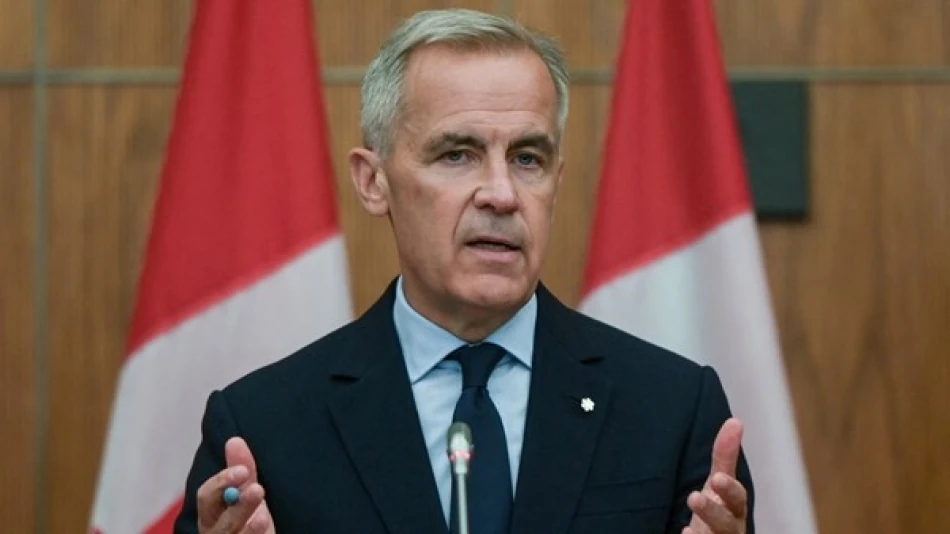
Canada Scraps Tariffs on American Goods, Boosting Cross-Border Trade Ties
Canada Extends Olive Branch to Trump with Strategic Tariff Rollback
Canada is preparing to eliminate most retaliatory tariffs on U.S. goods in a calculated diplomatic move designed to restart stalled trade negotiations with the Trump administration. The decision, which spares key sectors like automotive, steel, and aluminum from immediate relief, signals Prime Minister Mark Carney's shift toward pragmatic engagement after months of economic standoff.
A Measured Concession Strategy
According to an informed source speaking on condition of anonymity, Canada will remove retaliatory tariffs on goods covered under the United States-Mexico-Canada Agreement (USMCA), while maintaining duties on the most contentious items. This selective approach allows Ottawa to demonstrate goodwill without abandoning leverage in sectors where Canadian industries face the greatest American competition.
The announcement, expected during Carney's press conference Friday at 4:00 PM GMT, immediately boosted the Canadian dollar by 0.5% to 1.3837 against the U.S. currency, reflecting investor optimism about reduced trade tensions.
From Campaign Promises to Diplomatic Reality
Carney's move represents a notable evolution from his April election campaign, where he won office partly by promising to stand firm against Trump's tariff regime. The Prime Minister's increasingly conciliatory tone became evident after his first direct conversation with Trump since June, which his office characterized as "productive."
This tactical shift mirrors similar recalibrations seen in other U.S. trading relationships, where initial resistance to Trump's trade policies eventually gave way to negotiated settlements. Mexico's renegotiation of NAFTA and China's phase-one trade deal both followed periods of escalating tensions before diplomatic breakthroughs.
Market and Strategic Implications
For currency traders and commodity markets, Canada's partial tariff withdrawal reduces uncertainty in North American trade flows while maintaining enough friction to keep negotiations meaningful. The decision to preserve tariffs on automotive, steel, and aluminum products protects Canada's most politically sensitive industries while offering concessions on less critical goods.
The timing appears deliberate, coming as Trump faces his own domestic economic pressures and may be more receptive to quick diplomatic wins. Canada's approach of offering measured concessions rather than wholesale capitulation could provide a template for other nations navigating Trump's transactional trade diplomacy.
Testing the Waters for Broader Agreement
After months of fruitless discussions toward a new economic and security pact, Canada's tariff gesture serves as a practical test of whether goodwill measures can unlock more substantive negotiations. The success or failure of this approach will likely determine whether other U.S. trading partners adopt similar strategies or maintain more confrontational stances.
The selective nature of Canada's concessions suggests Ottawa believes it can thread the needle between domestic political expectations and American demands, potentially creating space for the comprehensive agreement both sides have struggled to achieve through conventional diplomatic channels.
Most Viewed News

 Layla Al Mansoori
Layla Al Mansoori






